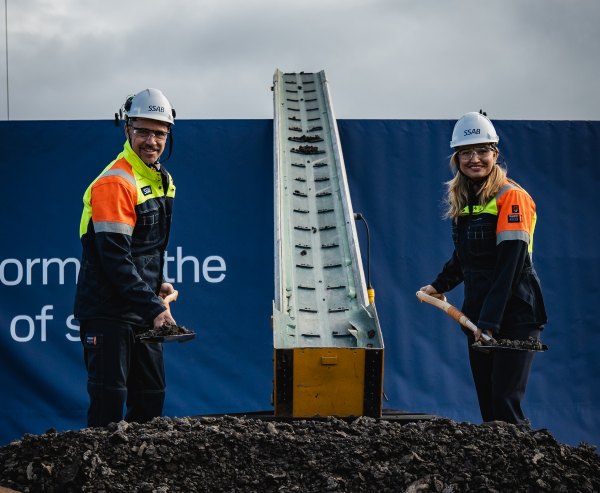Swedish specialty steel producer SSAB has announced that it has officially begun construction of its new green steel mill in Luleå, marking a historic milestone in Sweden’s transition to fossil-free steel production. With an investment of €4.5 billion, the project is expected to be operational by the end of 2029, delivering a seven percent reduction in Sweden’s total carbon dioxide emissions.

National and industrial significance
Ebba Busch, Sweden’s minister for energy, business and industry, called the project a “historic step for Swedish industry”, underscoring its role in strengthening Sweden’s industrial leadership and climate ambitions.
SSAB CEO Johnny Sjöström added that the company is building the world’s most electrified steel mill, combining innovation with efficiency to cut costs, shorten lead times, and enhance flexibility. Replacing the blast furnace-based model will largely eliminate Luleå’s carbon emissions.
Project scope and technology
The Luleå steel mill will feature:
- Two electric arc furnaces (EAFs) with continuous scrap feeding for lower energy use and reduced nitrogen oxides
- Advanced secondary metallurgy
- An integrated hot rolling mill and a cold rolling complex
- Facilities for galvanization, continuous annealing, and advanced finishing
The plant will rely on fossil-free sponge iron and recycled scrap, enabling an annual carbon reduction of 3 million mt.
Efficiency and sustainability measures
The facility integrates advanced sustainability features:
Energy efficiency: continuous scrap feeding to minimize energy demand
Cleaner air: lower nitrogen oxide formation
Heat recovery: excess heat fed into Luleå’s district heating system
Production and market output
Once operational, the Luleå mill will produce hot rolled strip plates widths up to 2,100 mm and thicknesses ranging from 1.3 mm to 25.4 mm, and coil weights up to 40 mt.
These specifications ensure both global competitiveness and the ability to serve advanced industries requiring high-quality steel.